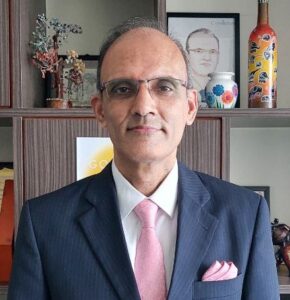- +91 9920132979 / +91 9322866643
- [email protected]
Planning is what ensures great outcomes
Planning is important in everything we do. Without a plan, there will be no structure and chaos will ensue.
Investing is different in so many ways. Everywhere else, we learn first and then go ahead and use that knowledge or skill. For instance, we learn to drive first and then start driving. Same when we want to play an instrument.
The only place where we probably don’t first learn but start doing almost from the start, is Investing! How do we do that? We base our actions on a few articles we may have read, watch some TV and listen to some money podcasts and then start investing! Surprisingly, many people consider themselves “well informed” with respect to personal finances based on such information.
Investing is different in so many ways. Everywhere else, we learn first and then go ahead and use
that knowledge or skill. For instance, we learn to drive first and then start driving. Same when we
want to play an instrument.
The only place where we probably don’t first learn but start doing almost from the start, is Investing!
How do we do that? We base our actions on a few articles we may have read, watch some TV and
listen to some money podcasts and then start investing! Surprisingly, many people consider
themselves “well informed” with respect to personal finances based on such information.
Some people even don’t do that – they find out what their friends and colleagues are doing; they
just replicate that, even though their situation can be quite different! Others allow their parent,
spouse or someone close to take care of the finances – even easier!
In all this, there is not much thought given to overall life situation, proper money management, risk
inherent in investments, overall goal fulfilment throughout life, proper diversification, liquidity and
money availability at the right point for the goals, etc.
Most people look at the returns that asset is giving and go ahead with their investment. That is why,
we see waves of investment flowing into products that are doing well at a particular moment. For
instance, if gold is doing well at that point, money will flow into Gold until the point something else
starts to do well. Then the money will go into that asset class.
Such a return focussed approach brings with it a whole lot of problems. Since returns are the only
focus, the approach to investments is adhoc. Such people do not carefully assess what investment
needs to be in their portfolio, considering their personal situation, their goals, liquidity & tenure
needs etc. What they fail to realise is that the wealth they are creating should help them meet their
goals comfortably and on time. Wealth accumulation is not an end in itself!
There is a better way to build wealth, meet all the goals and live happily. We need to start with a
plan.
When we buy a piece of land and want to construct a home, we do not call an excavator and dig up
the place. We first go to an architect and state the requirements in terms of how many people will
be there, area required, a bit about the people who would stay in that house, what kind of home we
want, etc. Then the architect comes up with the blueprint, which takes into account all that their
client had stated. The building that is constructed will be based on that blueprint and hence will be
truly suited to the family’s needs.
We need a blueprint or a plan everywhere. We plan birthday parties and outings. Yet we ignore
planning our finances, for which we spend a good part of our lives!
In financial planning, investments come at the end of the financial planning process – not at the
start. Starting with investments is like putting the cart before the horse!
In financial planning process, we need to start by understanding what is that they want to achieve
when they are engaging a financial planner. There should not be an expectation mismatch. For
instance, if the client is focussed on returns and the planner is geared to help the family to meet all
the goals on time, manage the risk and deliver a happy life, there is a clear mismatch. While the
planner would be doing a great job, the client may not be happy at all, as the planner is not
focussing on maximising returns and is not taking tactical calls when some “opportunities” arise.
Hence, it is very important to check and align on the expectations from the exercise. That is when
both the planner and the client would be working in concert, to achieve agreed goals.
In financial planning, ensuring that the agreed, important goals are achieved is sacrosanct. Checking
the feasibility of achieving the goals, including long-term goals like retirement is very important. The
next important decision for the financial planner is the portfolio composition – what assets should
be there, in what percentage is critical to arrive at. This is a factor of the risk profile of the person(s),
life situation, number of years to retirement, goals and when they are coming up etc.
The financial planner would have to assess the level of overall financial risk to the family and suggest
appropriate risk mitigation tools like insurances.
The financial planner will need to look at existing investments, insurances, loans etc. and suggest
appropriate recalibration as part of their overall portfolio construction. It is after all this work, will
the investments be decided as an outcome of the entire planning process.
The entire action plan for the next 12 months is then made known to the clients who can then start
implementing the recommendations. Many times, the client chooses to stay with the financial
planner and continues to receive appropriate advice and access help in implementing the plan
recommendations.
To drive home the importance of financial planning and how a financial advisor helps clients in
various situations, I have written a book titled – If God was your Financial Planner in an easy-to-read
story format. Here, one will learn about the advisory thought process, how an advisor would be able
to assist clients and the different circumstances of clients that a financial planner handles.
Planning is important in everything we do. Without a plan, there will be no structure and chaos will
ensue. A plan once created may need to be relooked and course corrections may be needed, at
regular intervals. That will ensure that the financial planning exercise always takes everything into
account, including any changed circumstances.
Planning is the activity that focuses our efforts towards a desirable outcome and helps in achieving
them through well thought methodologies and strategies. Like they say, we plan to fail, when we fail
to plan. It is a cliché – yet absolutely on-the-button!
Suresh Sadagopan is the MD & Principal Officer at Ladder7 Wealth Planners and is the author of
the book If God was your Financial Planner


Your feedback/comments are welcome